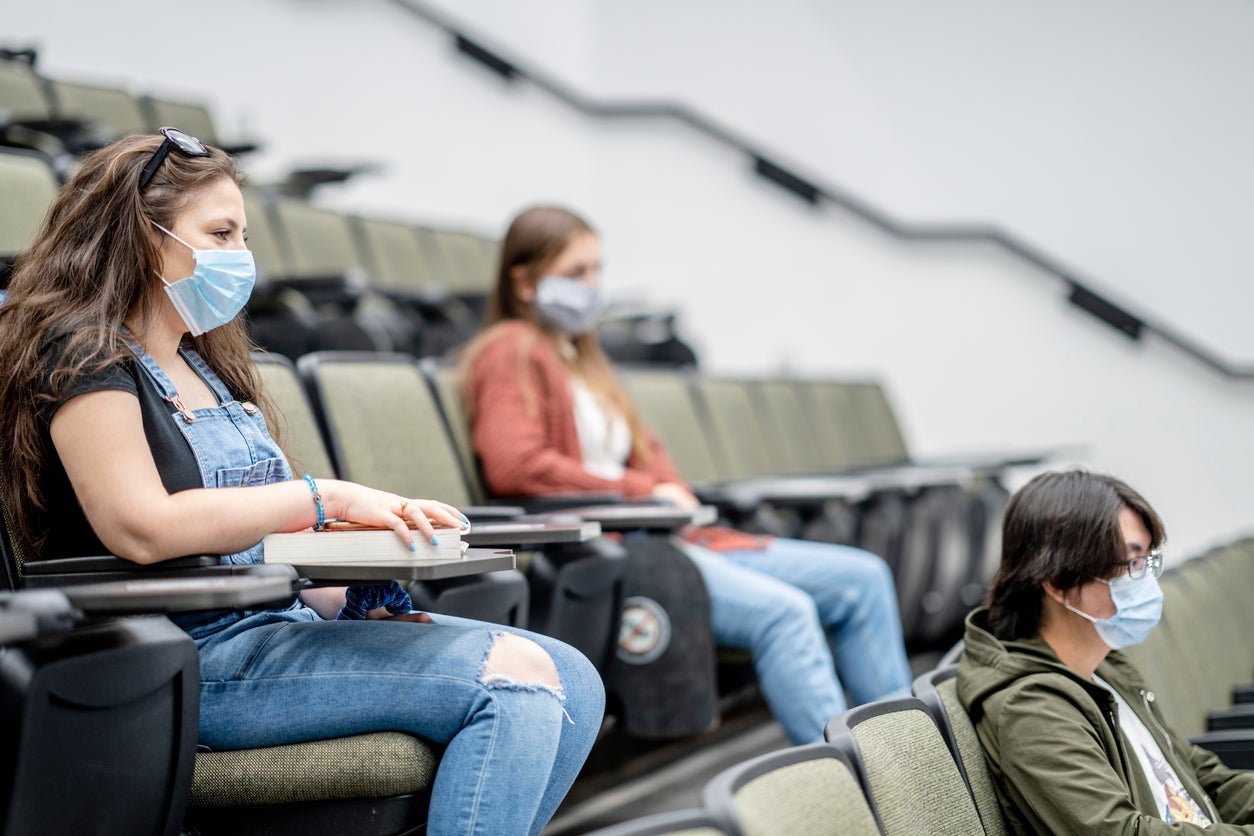Covid regulations may affect the young, but giving out ‘cash compensation’ is wrong
We all have our part to play in the ‘social contract’. Vaccine uptake is lowest among 19-29-year-olds – the young could consider older people more during the pandemic, writes Salma Shah


One of the most interesting aspects of the pandemic is understanding that despite the rhetoric, Covid, is not the great equaliser. We may all have to follow the same rules regardless of our circumstances but inevitably the consequences, risks and critically, outcome for every individual varies greatly.
This is not just a question of rich vs poor or healthy vs unhealthy – it has exposed all manner of social fault lines, some of which have been a recurring sore for some years. Take for example intergenerational unfairness. We know that young people have put their lives on hold during the pandemic but an idea to compensate the young – as suggested author Ben Judah, who said it would be “funded by a one-off tax on the generations they protected” – has annoyed many.
The proposal is to provide a cash lump sum of a few thousand quid as a “thank you” to young people for enduring hardships such as not being able to go to nightclubs or whatever sacrifice they’ve made has been met with justifiable derision. Without wishing to sound like a ranting middle-aged person – the idea is a load of rubbish!
Putting aside the practical issues around designing and delivering an expensive national grant policy, the idea of compensation for one group creates issues for “the social contract”. We’re all expected with our relative positions to make the required contributions to society, we do so because that’s ultimately fair. But more than this, it totally flies in the face of the cycle and order of economic life. The closer you are to retirement or let’s be honest, death, the less likely you are to be able to find the opportunities to make the high-value contributions, that’s why much falls on the shoulders of the working young as it did for the previous generation. The outlook for the young isn’t great at the moment but the youth have the advantage of time and in most cases, good health.
What’s striking about the griping of the young is that vaccine weariness is also prevalent in this group. Not the conspiracy theory type of hesitancy where suggestions that Bill Gates is microchipping you through an injection are rife, but just the pure fatigue of thinking that booster jabs or second jabs aren’t worth the bother. The numbers show that the uptake is lowest in the 18-29 age bracket, and perhaps there are some obvious reasons, they are after all the groups that are usually the last to be called forward because of a lower risk profile and whilst we don’t see many pictures of youngsters suffering on ventilators the spread of disease requires people to honour their commitment to the social contract and get the jab with some sense of urgency.
There is also an ultimate iniquity in the way certain arguments play out. We praise the young for the pressure they have rightly applied on issues like the climate crisis. We pay attention to their new perspective on the world when it comes to gender identity and other things the older generation haven’t considered, so why when it comes to protecting older people the same passion and zeal doesn’t apply? Perhaps it is easier to fight for an inanimate concept than real people who are fallible but need the support of their younger generations.
We all have to make our contribution even if it feels like we’re out of the pandemic danger zone. We’ve got the harder task of picking up the pieces when this pandemic does come to an end and it will take a huge effort in every age bracket of society. This will impact us all in different ways so no one deserves special treatment. Unless, of course, there’s a little tax incentive for hard-working mums, in which case I’d be all for it!



Join our commenting forum
Join thought-provoking conversations, follow other Independent readers and see their replies
Comments